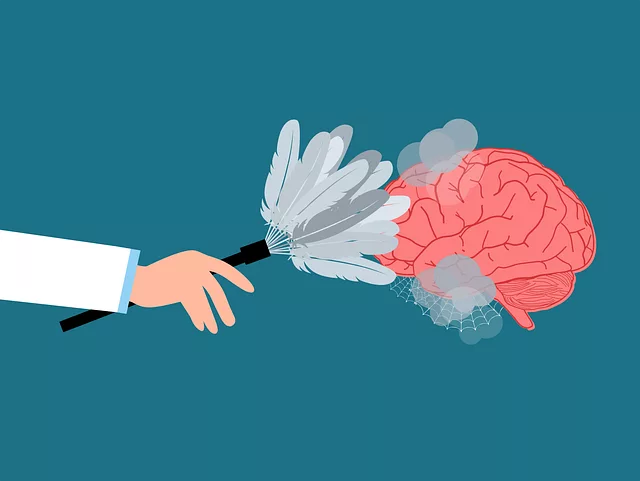Cultural competency in healthcare, particularly psychiatric services, is crucial for addressing disparities among diverse patient populations. Kaiser Permanente Colorado Springs leads with culturally sensitive care through specialized treatments, public awareness campaigns, and innovative training programs like interactive workshops and the Mental Wellness Podcast Series. Their comprehensive approach, accessible via the Kaiser Permanente psychiatry phone number Colorado Springs, includes strategies like active listening, multilingual resources, and empathetic provider training, fostering inclusivity and improving mental health outcomes for all communities.
“In today’s diverse healthcare landscape, cultural competency among providers is no longer an option but a necessity. This comprehensive guide explores the significance of cultural competency in healthcare, particularly focusing on mental health services. We delve into how unconscious biases impact patient outcomes and highlight successful initiatives like Kaiser Permanente Colorado Springs’ psychiatric services. Additionally, we offer practical training strategies and communication tips to enhance cross-cultural interactions, drawing insights from industry leaders.”
For more information on Kaiser Permanente psychiatry services in Colorado Springs, visit their official website or contact them via phone.
- Understanding Cultural Competency in Healthcare: A Necessity for Quality Care
- The Impact of Cultural Biases on Patient Outcomes
- Kaiser Permanente Colorado Springs: A Leader in Psychiatric Services
- Training Approaches to Enhance Cultural Sensitivity in Mental Health Care
- Practical Strategies for Healthcare Providers to Improve Cross-Cultural Communication
Understanding Cultural Competency in Healthcare: A Necessity for Quality Care

In the healthcare sector, cultural competency is more than a buzzword; it’s an imperative for delivering high-quality care to a diverse range of patients. Understanding and respecting different cultures, beliefs, and values are essential aspects of effective patient interaction and treatment. The ability to navigate sensitive topics related to mental health, specifically in the context of psychiatry, requires cultural sensitivity. For instance, those seeking services from a Kaiser Permanente psychiatry phone number in Colorado Springs might have unique needs and expectations based on their cultural backgrounds.
Cultural competency training equips healthcare providers with the skills to recognize and appreciate these differences. It enables professionals like psychiatrists to create a safe and supportive environment for patients, fostering open communication and better outcomes. This is crucial not just for individual patient care but also for reducing disparities in mental health services. Burnout prevention strategies for healthcare providers often emphasize the importance of cultural competency as a means to enhance job satisfaction and overall mental wellness, which can be explored through podcasts and workshops focused on stress management.
The Impact of Cultural Biases on Patient Outcomes

Cultural biases can significantly impact patient outcomes, particularly in healthcare settings where providers interact with diverse populations. These biases, often unconsciously held, can lead to miscommunications and misunderstandings between patients and caregivers. For instance, a study by Kaiser Permanente in Colorado Springs revealed that racial and ethnic minorities often face disparities in mental health care, including less access to specialized services like psychiatry phone consultations. This disparity can result from cultural mistrust, language barriers, or even unconscious stereotypes affecting the quality of care received.
When healthcare providers lack cultural competency, it may hinder their ability to deliver effective treatments tailored to each patient’s unique needs. For example, what works for improving emotional well-being promotion techniques and inner strength development in one culture might not be suitable or accepted in another. Effective management of mood disorders requires an understanding of the patient’s cultural context, including traditional coping mechanisms and beliefs about mental health. By recognizing and addressing these biases through comprehensive training programs, healthcare providers can ensure better patient outcomes and create a more inclusive environment that respects and values diverse cultural backgrounds.
Kaiser Permanente Colorado Springs: A Leader in Psychiatric Services

Kaiser Permanente Colorado Springs stands out as a leader in psychiatric services, offering comprehensive care that bridges cultural gaps. With a dedicated team of mental health professionals, they prioritize Kaiser Permanente psychiatry phone number Colorado Springs accessibility and provide specialized treatment tailored to diverse patient needs. Beyond traditional therapy, Kaiser Permanente integrates Public Awareness Campaigns Development initiatives to foster community understanding of mental health issues, promoting early intervention and Crisis Intervention Guidance.
Their innovative approach extends to incorporating Stress Reduction Methods, ensuring patients have access to tools for managing daily stressors. Through these efforts, Kaiser Permanente Colorado Springs demonstrates a commitment not only to clinical excellence but also to improving public mental wellness, setting a benchmark for healthcare provider cultural competency training across the nation.
Training Approaches to Enhance Cultural Sensitivity in Mental Health Care

Cultural competency training is an essential aspect of enhancing mental health care services, especially in diverse communities like Colorado Springs. At Kaiser Permanente, innovative approaches are being implemented to improve cultural sensitivity among psychiatry staff. One effective strategy involves interactive workshops that encourage open discussions about racial biases, cultural norms, and their impact on mental healthcare-seeking behaviors. These sessions foster an environment where professionals can explore their own assumptions and develop strategies to provide more inclusive care.
Additionally, Kaiser Permanente’s Mental Wellness Podcast Series Production plays a vital role in promoting cultural awareness. The podcasts offer insights into various cultural perspectives related to mental health, encouraging listeners to consider the unique challenges faced by different communities. Topics such as stress management and resilience building are explored, emphasizing the importance of tailored interventions that respect and address individual cultural backgrounds. This multimedia approach ensures that training reaches a broader audience, fostering a more culturally competent psychiatric care environment in Colorado Springs and beyond.
Practical Strategies for Healthcare Providers to Improve Cross-Cultural Communication

Healthcare providers play a vital role in fostering effective cross-cultural communication, especially in diverse communities like Colorado Springs. One practical strategy is to encourage active listening by creating safe spaces for patients to express their cultural beliefs and concerns openly. This involves training providers to be patient, empathetic, and non-judgmental, ensuring every patient feels heard and respected. Additionally, offering multilingual resources and interpreting services can significantly enhance accessibility and understanding, as seen in the successful implementation of these practices at Kaiser Permanente.
Another approach is to incorporate cross-cultural training into routine education programs, focusing on cultural sensitivity and awareness. This includes learning about different ethnic, racial, and socioeconomic backgrounds, along with their unique health considerations. Stress Management Workshops Organization, for instance, can facilitate interactive sessions that explore cultural influences on stress perception and coping mechanisms, thereby improving patient outcomes. Public Awareness Campaigns Development can also be leveraged to promote these training initiatives, emphasizing the importance of cross-cultural communication in modern healthcare practices.
Healthcare provider cultural competency training is not just a best practice—it’s a necessity for delivering quality care. As seen in successful initiatives like Kaiser Permanente’s psychiatric services in Colorado Springs, training that enhances cultural sensitivity can significantly improve patient outcomes and foster more inclusive healthcare environments. By adopting practical strategies to improve cross-cultural communication, healthcare providers can better navigate diverse patient populations, ensuring everyone receives the compassionate, effective care they deserve. For more information on mental health services, contact the Kaiser Permanente psychiatry phone number in Colorado Springs.






